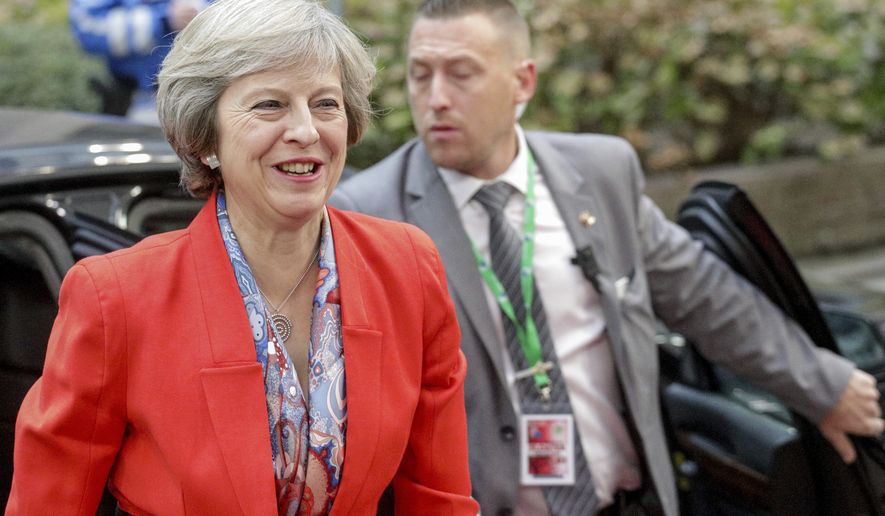LONDON (AP) — In a major blow for Britain’s government, the High Court ruled Thursday that the prime minister can’t trigger the U.K.’s exit from the European Union without approval from Parliament.
The government is likely to appeal the ruling to the Supreme Court.
Several claimants challenged plans for Brexit in a case with major constitutional implications, hinging on the balance of power between Parliament and the government.
Prime Minister Theresa May has said she will launch exit negotiations with the EU by March 31. She is relying on a power called the royal prerogative that lets the government withdraw from international treaties.
Claimants argue that leaving the EU will remove rights, including free movement within the bloc, and say that can’t be done without Parliament’s approval.
Three senior judges ruled that “the government does not have the power under the Crown’s prerogative” to start EU exit talks.
The case is considered the most important constitutional matter in a generation.
Underscoring the importance of the case, May put Attorney General Jeremy Wright in charge of the legal team fighting the claim. Wright argued that the lawsuit is an attempt to put a legal obstacle in the way of enacting the result of the June 23 referendum to leave the EU.
May wants to use royal prerogative, historic powers officially held by the queen, to trigger Article 50 of the EU’s treaty, which starts two years of talks before Britain’s departure from the EU. The powers, which have in reality passed to politicians, enable decisions to be made without a vote of Parliament and cover matters as grave as declaring war or as basic as issuing passports.
Historically, royal prerogative has also applied to foreign affairs and the negotiation of treaties.




Please read our comment policy before commenting.